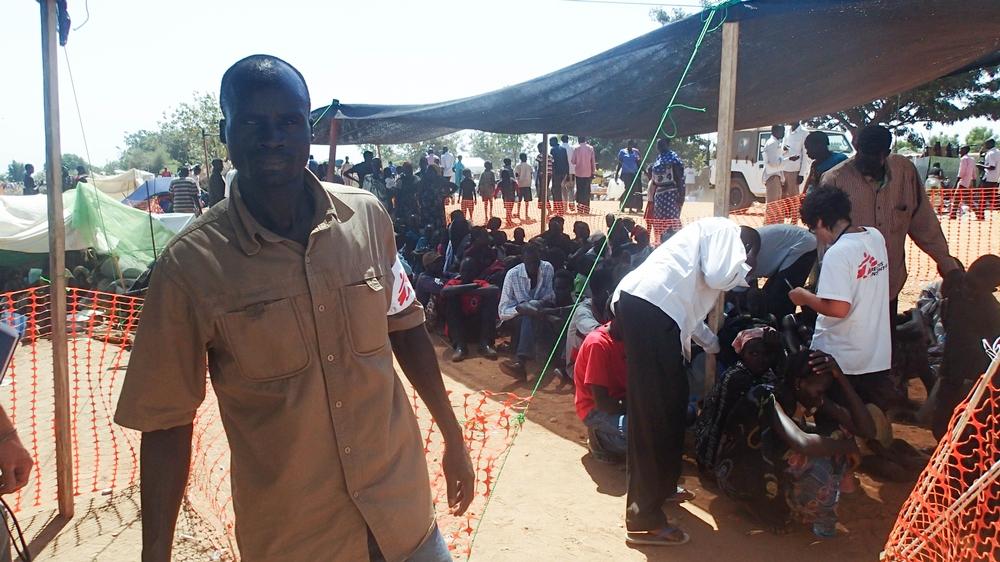Tensions and conflict across many regions of South Sudan continue one week after they began. Médecins Sans Frontières (MSF) emergency teams are increasing their response to affected regions by treating the injured, donating drugs and medical supplies to health facilities, and providing relief to those displaced by the violence.
Fighting erupted in Bentiu, capital of Unity State on Friday, December 20th. The Bentiu Ministry of Health hospital received 42 wounded, with 19 requiring surgery. An MSF team is currently providing support to Bentiu's hospital focusing on pre and post-operative care, in conjunction with ICRC.

Yesterday fighting broke out in Nasir, Upper Nile State. MSF’s hospital in Nasir town received 24 gun-shot wounded patients, of which 16 were admitted to hospital, 2 died and 8 were treated in the emergency room.
“We are deeply concerned for the safety of those caught up in the violence,” says Mike White, MSF’s Head of Mission. “After thirty years of working in South Sudan, we are committed to doing everything we possibly can to help those most in need.”
In the country’s capital Juba, two emergency teams comprised of medics, logistics staff and water treatment specialists have begun providing medical care for the more than 20,000 people displaced by the recent fighting.
“Yesterday while setting up the mobile clinic for the displaced in Juba, there was still a queue of people arriving carrying all their belongings, with their children in tow. With the ongoing conflict in the country, people are unsure of how the situation will evolve and are scared to return home,” says Forbes Sharp, MSF’s Emergency Coordinator. “The situation is evolving fast in South Sudan and we are reacting as best we can to the changing landscape of the violence.”
Emergency teams are being deployed to reinforce MSF’s existing activities and to respond to needs as they arise. While MSF has reduced the number of non-essential staff in favour of deploying emergency-specialised teams, MSF’s medical activities continue to operate in all twelve programmes across the country.
MSF call on all actors to respect medical facilities and workers and to assure safe access to healthcare.
MSF has been working in the region that today constitutes the Republic of South Sudan since 1983. MSF is present in eight of South Sudan’s ten states and responds to many emergencies, including large-scale displacement, refugee influxes, alarming nutrition situations and peaks of disease, such as malaria and kala azar, in addition to providing basic and specialist healthcare services.


